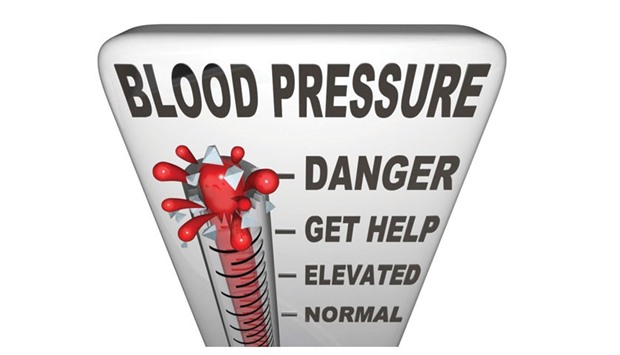
Hypertension, or high blood pressure, is determined by the amount of blood your heart pumps and the amount of resistance to blood flow in your arteries. The more blood your heart pumps and the narrower your arteries, the higher your blood pressure.
Mayo Clinic nephrology and hypertension expert Dr Ivan Porter agrees that everyone age 18 or older should have regular blood pressure checks, and, if the numbers are high, they should take steps to lower them.
“The biggest challenge is that there are generally no symptoms associated with high blood pressure. That’s why they call it the silent killer,” Porter says. “But, having high blood pressure long term can cause many serious health problems, such as heart disease and stroke, so it’s vital to keep blood pressure numbers down.”
When reviewing your blood pressure numbers, the top number, or systolic pressure, represents the pressure in your arteries when your heart pumps. The lower number, or diastolic pressure, represents the pressure in your arteries when your heart is at rest. Ideal blood pressure numbers can vary depending on age and medical conditions, but here is some general guidance:
NORMAL
Your blood pressure is normal if it’s below 120/80.
PREHYPERTENSION
You have prehypertension if your top number ranges from 120 to 139 or your lower number ranges from 80 to 89. Prehypertension tends to get worse over time.
HYPERTENSION
You have hypertension if your numbers are above 140/90. Untreated high blood pressure puts you at increased risk for:
-Heart attack or stroke
-Aneurysm
-Heart failure
-Weakened and narrowed blood vessels in your kidneys
-Thickened, narrowed or torn blood vessels in the eyes
-Metabolic syndrome
-Trouble with memory or understanding
Medication and/or changes in lifestyle can help get blood pressure numbers down. These healthy habits can make a difference:
-Eat a healthy diet with less salt (Dietary Approaches to Stop Hypertension, or DASH, diet).
-Exercise regularly.
-Quit smoking.
-Maintain a healthy weight or lose weight if you’re overweight or obese.
High blood pressure is common, especially for people over 60. Talk to your healthcare provider to ensure your blood pressure numbers are where they should be. – Mayo Clinic Network
